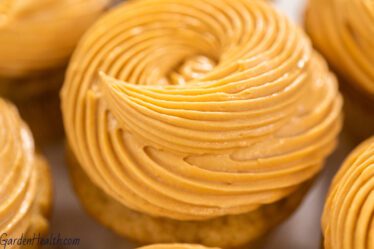
When you’re about to take the plunge into the ketogenic lifestyle, you might hear whispers of a challenge known as the ‘keto flu.’ But what if you could bypass this hurdle altogether? This article is specifically designed help you learn how to avoid keto flu when starting out on your keto journey.
What is Keto Flu?
As you alter your diet towards a low-carb, high-fat one, your body enters a state of transition, often accompanied by a series of symptoms dubbed the ‘keto flu.’ These symptoms are your body’s natural response to shifting energy sources from glucose to ketones.
Identifying Keto Flu Symptoms
You’ll want to keep an eye out for signs like weariness, headaches, mood swings, and other flu-like symptoms. Recognizing these early can be crucial in your quest on how to avoid keto flu.
Make sure you get our free keto diet recipe book – “Deliciously Easy Keto Recipes” written by Rachel Roberts by signing up for our newsletter below.
Proactive Steps to Avoid Keto Flu
Transition Gradually
One of the best strategies for how to avoid keto flu is to ease into the diet. A gradual reduction in carbs can help mitigate the onset of symptoms.
Hydration: Your First Line of Defense
Keeping well-hydrated is a simple yet effective tactic in avoiding keto flu. It helps alleviate fatigue and headaches.
Maintain Electrolyte Balance
An imbalance in electrolytes can be a major contributor to keto flu symptoms. Increase your intake of foods rich in potassium, magnesium, and sodium.
Nutrient-Rich Foods: Your Allies
Choosing nutrient-dense foods is another key to avoiding the keto flu, as it ensures your body gets the necessary vitamins and minerals during this dietary shift.
Fats: The New Energy Source
Fats become your new fuel on keto. Opting for healthy fats and monitoring your intake is essential when figuring out how to avoid keto flu.
Gentle Exercise
While intense workouts can exacerbate keto flu symptoms, light exercise can actually help you through the transition.
Rest and Recovery
Adequate sleep and relaxation techniques can play a significant role in how to dodge keto flu, giving your body a chance to adjust without additional stressors.
Protein in Moderation
Too much protein can interfere with ketosis. Keeping protein consumption within recommended limits is another aspect of how to prevent keto flu.

Weighing the Pros and Cons
Understanding the advantages and potential drawbacks is crucial when exploring how to avoid keto flu.
Pros:
- Easier transition into ketosis
- No disruption to daily life from flu-like symptoms
- Enhanced Energy and Clarity: In our experience, once you dodge the keto flu, you’re likely to experience the heightened energy and mental clarity that keto enthusiasts rave about. This can lead to increased productivity and an overall sense of well-being.
- Optimized Physical Performance: For those who lead an active lifestyle or are fitness enthusiasts, avoiding the keto flu means maintaining your workout regimen without suffering from muscle cramps or fatigue often associated with the condition.
- Improved Dietary Habits: The process of avoiding keto flu encourages the development of better dietary habits, such as planning meals and ensuring you’re getting a balance of nutrients, which can have long-term health benefits.
- Long-Term Diet Adherence: One of the biggest challenges of any diet is sticking with it. By avoiding the initial discomfort of the keto flu, you’re more likely to remain committed to the ketogenic lifestyle, leading to sustained weight loss and health improvements.
- Stabilized Mood and Emotions: The keto flu can often bring about mood swings and irritability. Knowing how to avoid it can help keep your emotions more balanced, which is beneficial not just for you, but for those around you as well.
Cons:
- Requires Time and Effort: Learning how to avoid keto flu demands time, effort, and research. You’ll need to plan your meals carefully, track your macros, and perhaps even prepare different foods if you’re cooking for a family who isn’t following the keto diet.
- Supplement Reliance: To prevent keto flu, you might find yourself needing to invest in supplements such as electrolytes or MCT oils. This can add an extra expense and requires you to be knowledgeable about the correct types and dosages.
- Dietary Restriction Challenges: Adjusting to the restrictions of a ketogenic diet can be socially and emotionally challenging. Social events, dining out, and even family meals can present obstacles that require strong willpower and pre-planning.
- Possible Nutrient Deficiencies: There’s a risk of nutrient deficiencies if the diet isn’t planned correctly. Avoiding keto flu often involves focusing heavily on fat intake, which can sometimes lead to neglecting other important nutrients found in excluded food groups.
- Keto Flu Might Still Occur: Despite all efforts, some people might still experience the keto flu. Genetics, metabolism, and other individual factors can influence how one’s body reacts to entering ketosis.
Preventing Keto Flu – Frequently Asked Questions
How long will I need these strategies to avoid keto flu? Typically, the keto flu can last from a few days up to two weeks.
Can I exercise while trying to avoid keto flu? Light to moderate exercise is recommended and can be beneficial.
Is it essential to increase fat intake to avoid keto flu? Yes, consuming adequate amounts of healthy fats is part of how to avoid keto flu.
Is it possible to completely avoid keto flu? While individual experiences may vary, following these tips can greatly reduce the risk. So you may be lucky and avoid it altogethor this is totaly normal.
Are there specific supplements that help avoid keto flu? Electrolyte supplements and MCT oil can be supportive in your efforts to avoid keto flu.
Final Thoughts
Learning how to avoid keto flu is all about preparation, understanding your body, and giving it the support it needs during the transition to a ketogenic diet. By following these steps, you can navigate this change with minimal discomfort and set yourself up for success in your health and wellness journey.
Related Links
Learn how to make healthy keto bread
How Much Sugar Can You Have on Keto?
https://www.health.harvard.edu/staying-healthy/should-you-try-the-keto-diet


